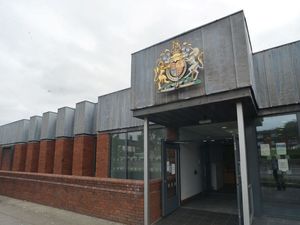Drive fails to curb knife-point crime
A drive to tackle teenage knife crime in the West Midlands has not seen a reduction in the number of robberies at knife-point, figures reveal today.
A drive to tackle teenage knife crime in the West Midlands has not seen a reduction in the number of robberies at knife-point, figures reveal today.
The Tackling Knives Action Programme (TKAP), which launched in 10 police areas in July last year – including the West Midlands – saw a 18 per cent fall in possession of a knife or sharp instrument and a 20 per cent drop in knife-related violence among teenagers.
But the number of under-19s committing street robberies with the weapons went up 13 per cent.
Police recorded a total of 666 robbery offences involving knives or sharp instruments during the time the scheme was running between July 2008 and March 2009.
Nationally, the number killed by a knife or sharp object did not change.
There were 23 deaths during the time the scheme was running.
And a total of 103 people aged 20 or over were killed by a knife or sharp object during the scheme, compared to 96 in the same period before the programme was introduced.
Senior officers said changing attitudes towards knife crime was like "turning the proverbial oil tanker" and could take generations.
The programme was launched after a series of high-profile teenage stabbings hit the headlines.
The Home Office-led initiative will now be extended into a second phase, with £5 million available to the 10 original forces and six others.
It was originally introduced to try to stop the carrying of knives and reduce the number of stabbings and murders among 13 to 19-year-olds.
The number of sharp instrument robberies against victims aged 19 and under was also down 13 per cent.
Announcing plans for the expansion of the programme, Home Secretary Alan Johnson said they still were working hard on violence. He said: "This is not a problem we can solve overnight but we remain totally committed to tackling youth violence."
The £7 million programme saw the introduction of a number of measures including anti-knife campaigns, more hospitals sharing accident and emergency data, and school patrols.





